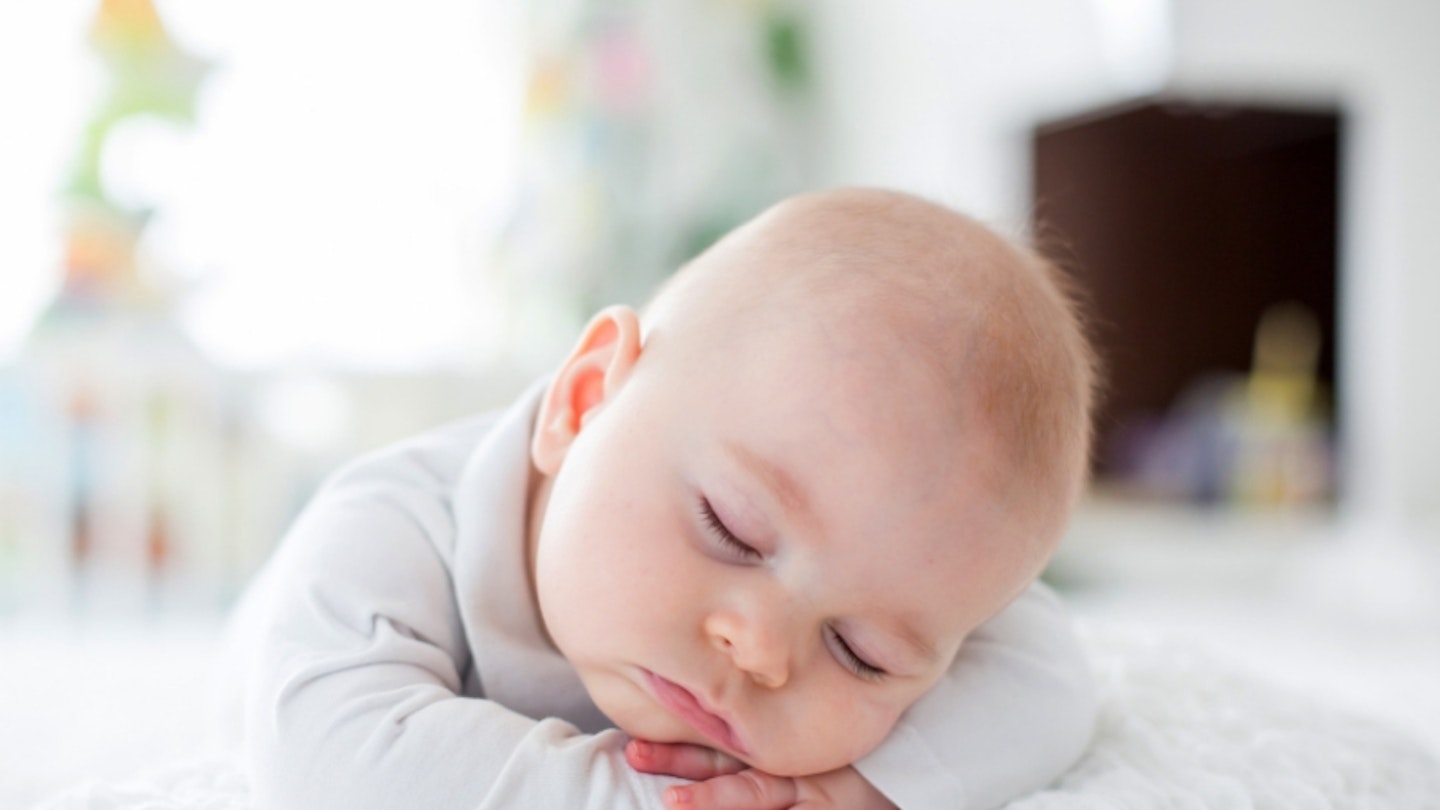Although it might not feel like it, yourbaby sleepsa lot! At one week old, they’ll be sleeping for 16 hours a day. Even 12 months later, they’ll be clocking up 13 hours out of every 24. And during that time, they are actually dreaming more than you do, plus it's helping their mental and physical development. Even more reason to invest in some baby sleep aids and encourage those sweet dreams.
We asked paediatrics expert, frequent TEDx speaker and author Dr Alan Greene to tell us more about how our babies dream...
Why do babies dream more than adults?
Professor Greene explains: ‘Just like adults, babies need sleep to restore their bodies and brains. We all go through “sleep cycles”: when we first fall asleep, we’re in light sleep and during this stage, it’s easy for us to wake up. Then we start to move into a deeper sleep, which is when our brain is resting and recovering, and then we go back towards light sleep again.’
Each of these cycles takes about 90 minutes, but your baby’s sleep cycles are much shorter and they move from light sleep to deep sleep every 50 minutes.
Therefore, because babies have more periods of the light sleep where dreams happen, they dream more than we do. Professor Greene adds: ‘Children dream more than adults, but babies dream the most.’
Can babies dream in the womb?
Amazingly, the answer to this question is yes! Scientists believe that as we enter Rapid Eye Movement sleep (REM), brainwaves suggest this is when we dream. When the brainwaves of unborn babies are measured, results show they get around 10 hours of REM sleep every 24 hours. This declines during the first months of life, and by the time your baby is one, they’ll be having five hours of REM sleep a night.
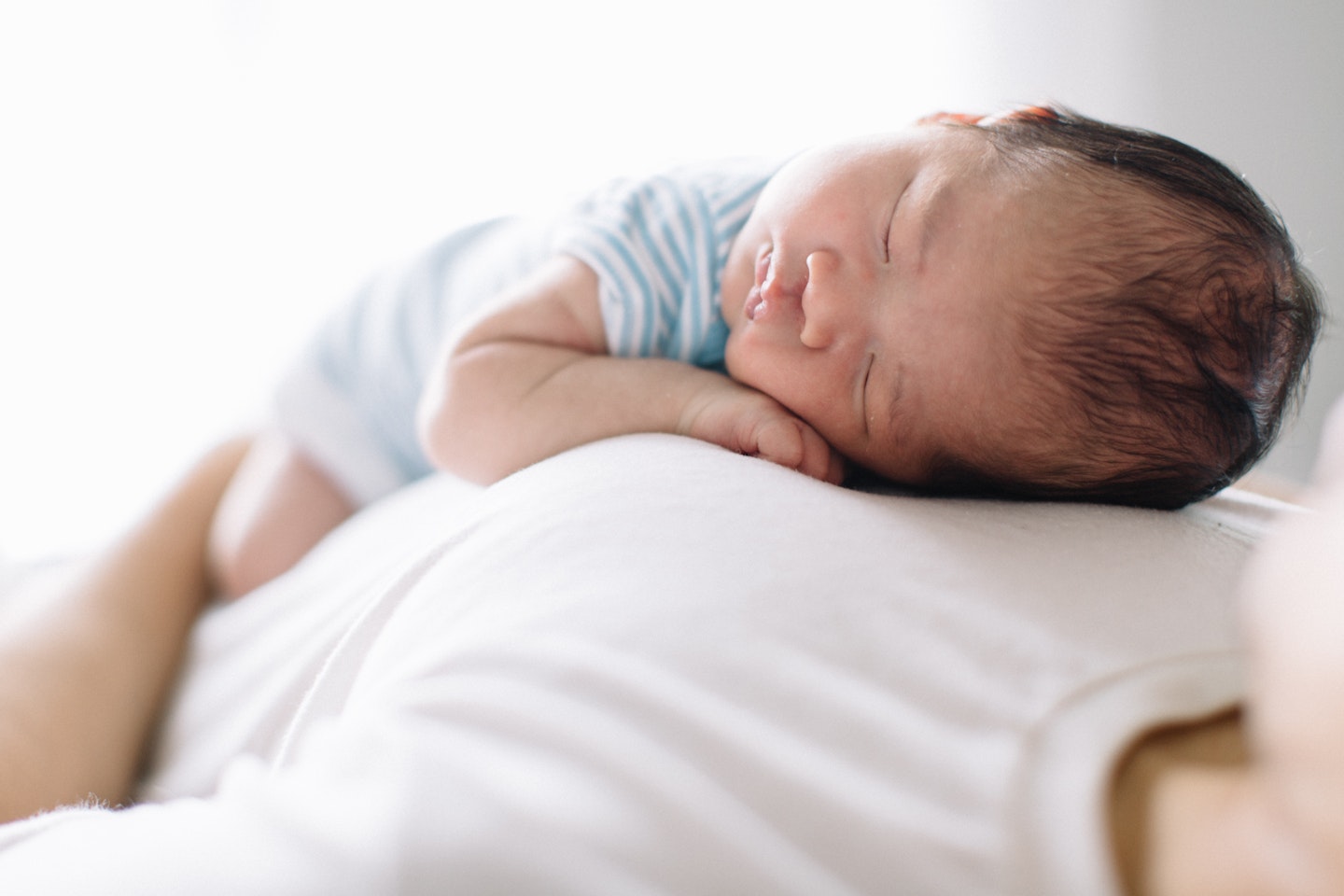
Of course, there’s no way of asking your baby to keep a dream diary so we're not sure exactly what babies dream about, but Professor Greene believes ‘dreams help babies make sense of their experiences’. As we know, your baby can hear and smell in the womb, and during the time spent dreaming in the womb, they are processing their amniotic world and trying to make sense of it. This processing carries on when your baby is born, as everything is new and overwhelming.
Dr Greene adds: ‘While baby can’t tell you what they're dreaming about, there are clues about the dreams they're having. The big clue is how baby behaves when they wake up. If they're happy and smiling, they've probably had a good dream. If they're fussy and crying, they might have been processing less happy experiences – maybe being hungry or when they didn’t like the way their Babygro felt.’
How can I tell my baby is dreaming?
These might leave you standing over their cot, but here are three key signs that your baby is dreaming:
How can I tell my baby is dreaming
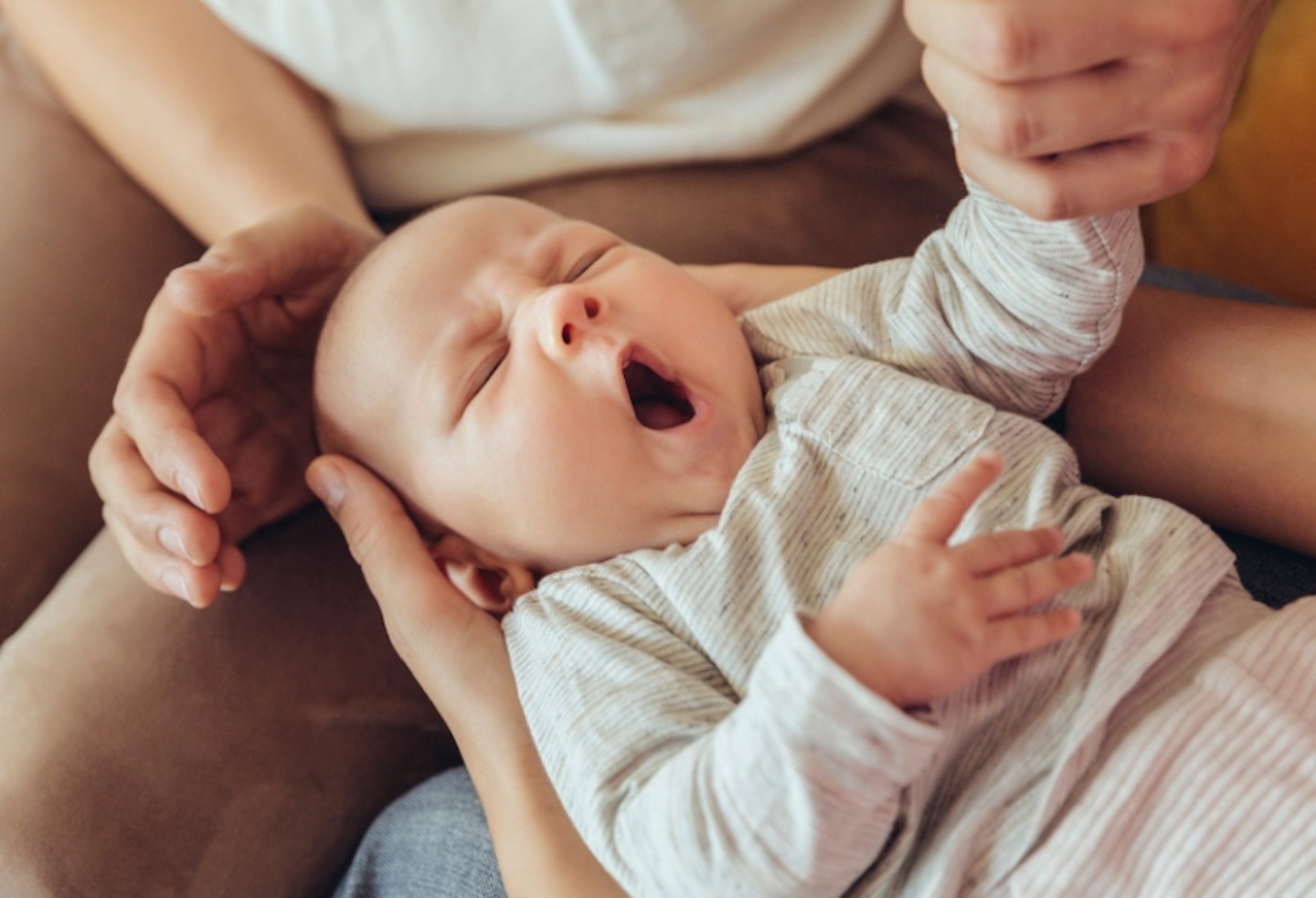 1 of 3
1 of 31) Twitching
Does your baby twitch when sleeping? Scientists at the University of Iowa think that these tiny movements might reveal which physical skill your baby is working on. So, if baby twitches their neck, it might not be long before they're supporting their head when awake.
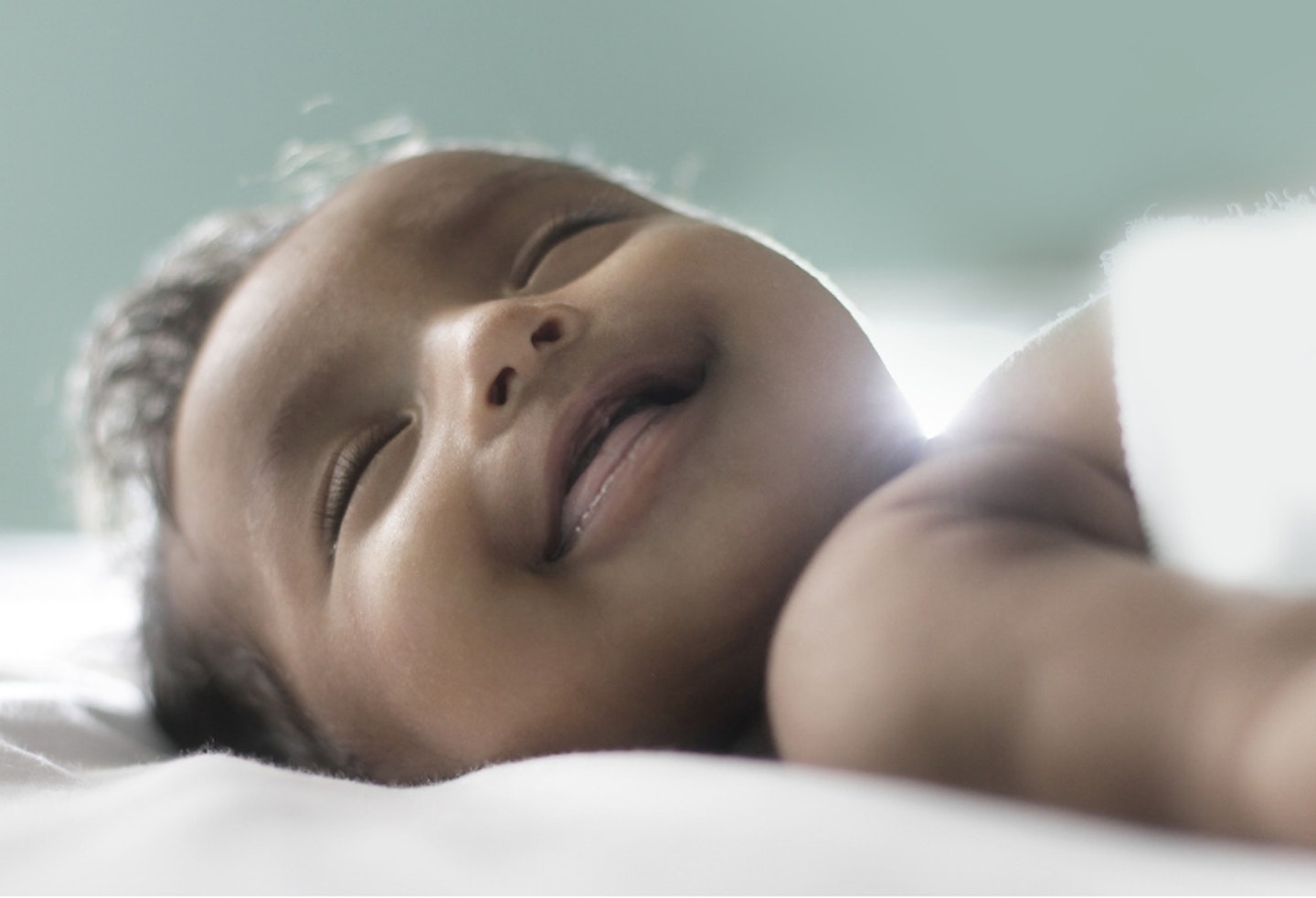 2 of 3
2 of 32) Smiling
Even in the first month of birth, if you see your baby with a spontaneous smile during sleep, they're probably enjoying a spot of REM dreaming.
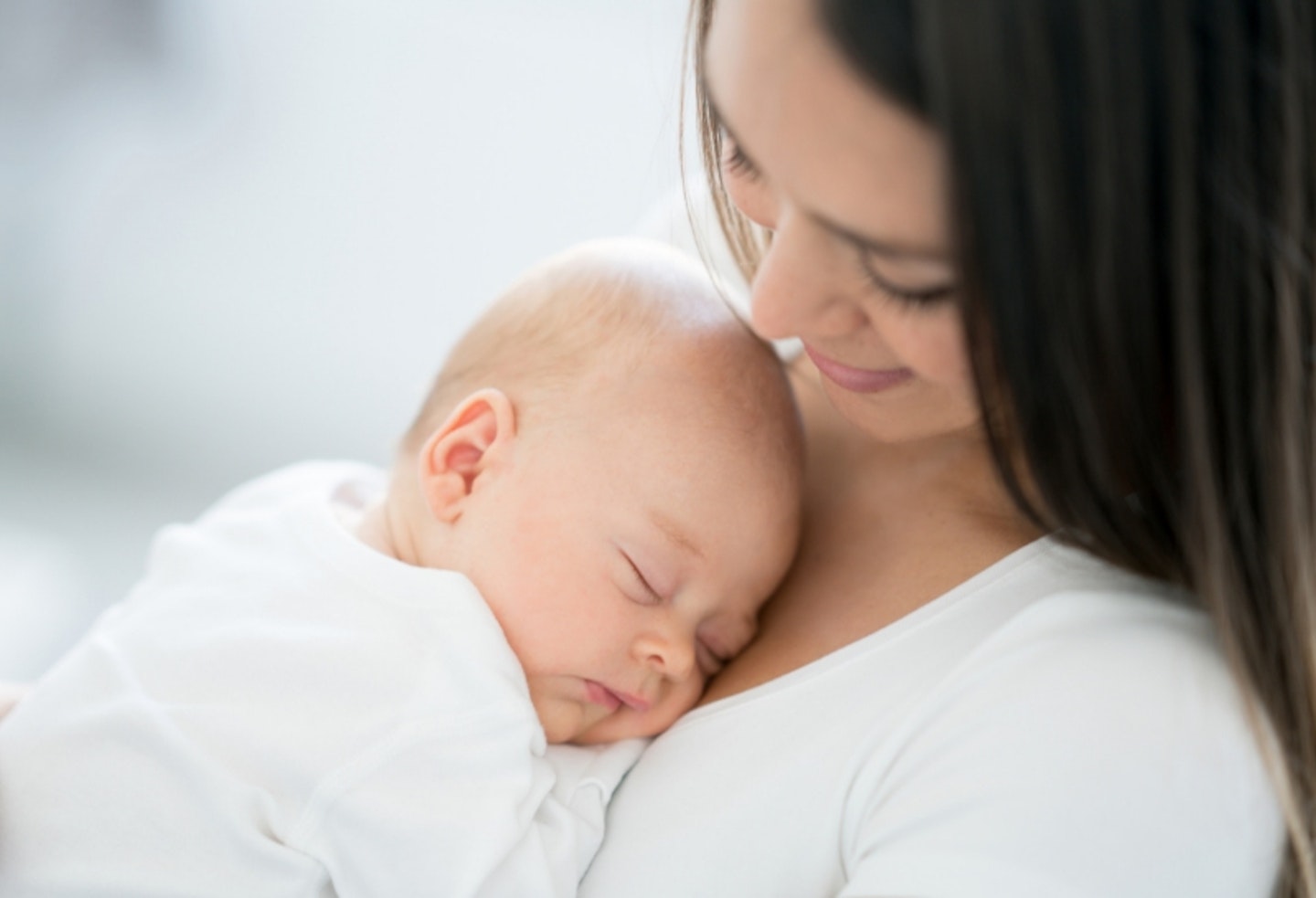 3 of 3
3 of 33) Eye movement
They're definitely dreaming if you can see their eyes moving rapidly beneath their eyelids. Scientists at Tel Aviv University have discovered that as our eyes flicker quickly back and forth in our sleep, the scenes in our dreams are changing.
How can I help my child deal with bad dreams?
As your baby becomes a toddler, they may experience nightmares or even night terrors. Nightmares are a normal part of toddler sleep. Dr Greene tells us: ‘we think that bad dreams tend to be most common in children aged between three and six. By this age, a child’s imagination has taken off and they can think about things that they haven’t actually sensed themselves. They are also developing a sense of fear.
‘Nightmares help children make sense of things they’re anxious about and one of the best things you can do is help your child to process them. Once they are old enough, get them to draw pictures of bad dreams and tell you what’s happening. Encourage them to find a positive at the end of the story.’
Remember, all dreams, good and bad are serving a purpose and growing your little one’s brain. Dreams help children to make sense of the world – the perfect excuse to get them to sleep earlier tonight!
